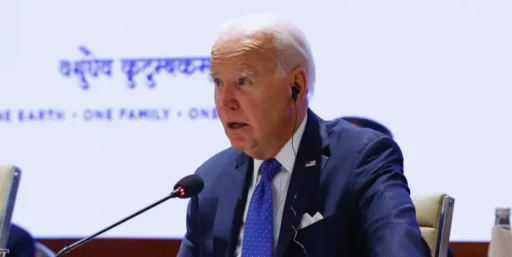US Blocks Palestinian UN Membership
The United States has upheld its pledge to veto a resolution presented before the Security Council, preventing the recognition of Palestinians as full members of the United Nations. Despite efforts by other Security Council members, the resolution did not garner sufficient support, resulting in a symbolic demonstration of the Biden administration’s isolation on the matter.
Global Divide: Security Council Vote
While twelve Security Council members voted in favor of granting Palestinians full UN membership, only the UK and Switzerland abstained from the vote. The US had initially sought to dissuade the Palestinian Authority from pursuing the resolution, but when efforts failed, it turned to other members to oppose or abstain from voting.
Biden’s Isolation: Lone Opposition
Global Support: Varied Responses
Countries such as Sierra Leone, Russia, Mozambique, Malta, Guyana, Ecuador, China, and Algeria also supported the resolution, aligning with their previous recognition of a Palestinian state. However, at least nine votes were needed to overcome the US veto, highlighting the challenges faced by the Palestinian cause at the international level.
US Stance: Opposition to Unilateral Statehood
The US has consistently opposed unilateral efforts by Palestinians to secure statehood at the UN, advocating for direct negotiations with Israel instead. Additionally, US officials underscored the need for significant reforms within the Palestinian Authority before statehood recognition, citing concerns of corruption and mismanagement.
Regional Strategy: Pursuit of Two-State Solution
The Biden administration’s regional strategy aims to achieve a two-state solution through broader initiatives. However, the plan hinges on Israeli acceptance of such a solution, which remains a point of contention within Israel’s political landscape. Despite challenges, the US remains committed to advancing its vision for peace in the region.
Palestinian Response: Criticism of US Veto
PA President Mahmoud Abbas condemned the US veto as an “aggression” against international law, accusing it of hindering the pursuit of peace in the region. Hamas also criticized the US stance, urging the international community to support the Palestinian cause and their right to self-determination.
Conclusion: Implications of US Veto
The US veto on the Security Council resolution reflects ongoing tensions surrounding the Israeli-Palestinian conflict. Despite global support for Palestinian statehood, the US remains a key player in shaping the diplomatic landscape of the region, underscoring the complexities of achieving a lasting peace agreement.











